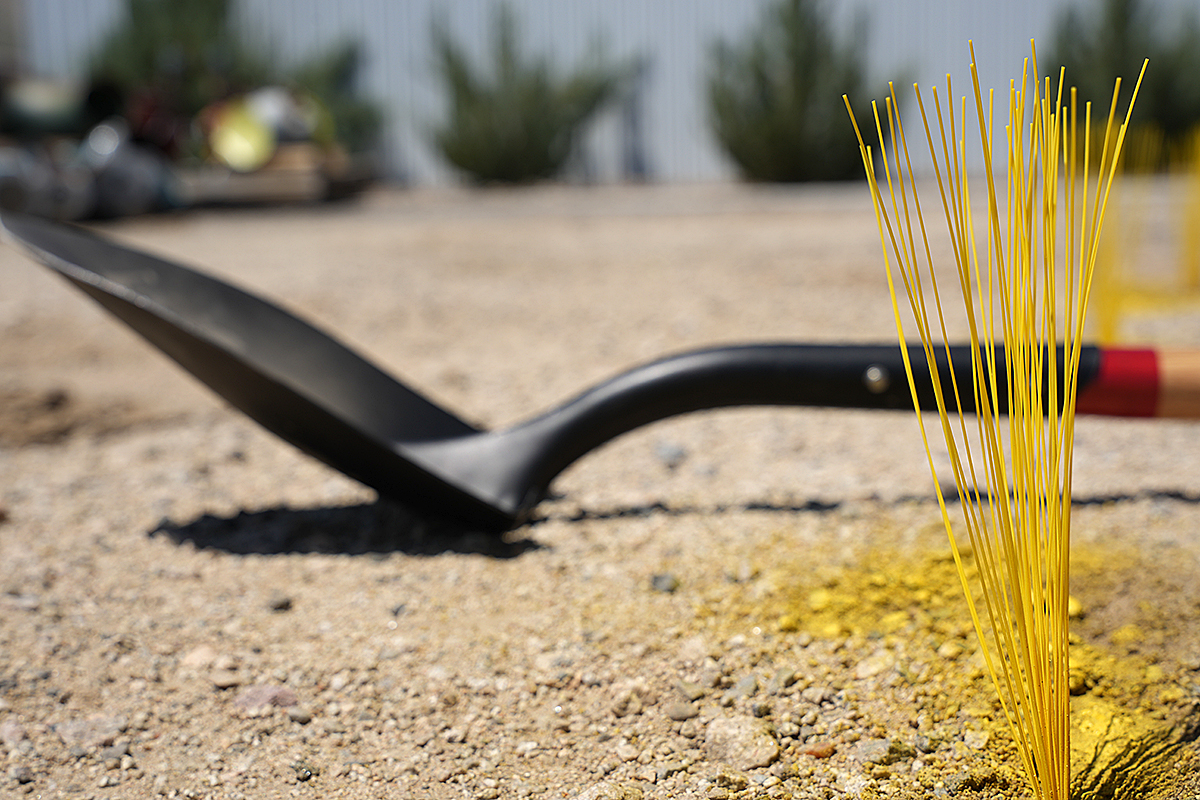
Spring is in the air, and for many of us, that means tackling outdoor projects — whether you’re planting a new tree, installing a fence, or upgrading your landscaping. But before you grab that shovel, there’s one essential step you can’t afford to skip: calling 811.
April is National Safe Digging Month, and Southwest Gas is reminding everyone that safe digging doesn’t just protect your project — it protects you, your family, and your community. By making a quick call to 811 or submitting an online request at call 811.com, you can help avoid dangerous accidents, costly damages and major service disruptions.
Homeowners and professionals alike should submit their request for line marking at least two business days before digging. Utility professionals will visit the property and mark the locations of underground utility lines using color-coded paint or flags. These markings serve as a guide, helping to prevent accidental damage and ensuring you avoid potentially dangerous surprises below the surface.
More People Are Digging Safely – And It’s Paying Off
The good news? Calling 811 is working! In the past year, alone, calls to 811 have increased by nearly 10 percent, contributing to a 7 percent reduction in underground utility damage throughout Southwest Gas’ tri-state territory compared to 2023. These improvements underscore the effectiveness of proactive safety measures and the role they play in protecting communities. However, despite this progress, the Common Ground Alliance’s latest DIRT report reveals that the leading cause of damages continues to be the failure to notify 811.

Promoting Safe Digging Across Industries
While homeowners play an essential role in calling 811 before digging, Southwest Gas is also working to educate professionals across multiple industries about safe excavation practices.
To prevent accidental damage to gas lines and underground utilities, Southwest Gas offers specialized damage prevention training. These free trainings are offered for excavators, plumbers, landscapers, DIYers and anyone planning to conduct underground work throughout the utility’s service territory. The training provides a comprehensive overview of state-specific excavation laws, outlines the steps for conducting a safe excavation, explains the process for requesting utility line markings and highlights critical emergency considerations before starting a project. For more information about damage prevention training, visit swgas.com/damage-prevention-training.
Recognizing and Responding to a Natural Gas Leak
Even with the best precautions, accidents can happen. If you hit a natural gas line or suspect a leak:
- Leave the area immediately and do not attempt to fix the damage or inspect the leak yourself.
- Avoid actions that could create a spark, such as using a lighter, automated garage door or turning on or off electrical switches.
- Once you’re at a safe distance, call 911, and then notify Southwest Gas at 877-860-6020.
- Stay clear of the area until professionals confirm that it’s safe to return.
A natural gas leak can be identified by a few key warning signs:
- A sulfur-like odor, similar to rotten eggs (since natural gas is odorized for safety).
- A hissing or roaring coming from the ground, above-ground piping, or a natural gas appliance.
- Environmental changes such as bubbling water, dirt blowing into the air or unexplained dying plants.
Being aware of these signs and reacting quickly can help prevent a dangerous situation.
A Safer Future Starts with One Call
Whether you are a homeowner, landscaper or contractor, safe digging begins with one simple but critical step — calling 811. Taking this precaution helps prevent accidents, service disruptions and costly repairs, ensuring that projects can be completed efficiently and safely.
For more information on safe digging practices and natural gas safety, visit swgas.com/dig-safe


